As protests across North America challenge systemic racism and police violence, we asked Tyee readers how they were supporting the movement for Black lives.
We wondered what people in our community were doing at this pivotal time. It turned out — unsurprisingly — they’re participating in a wide variety of creative ways.
In our Tyee poll, we set out six ways to participate and asked people to let us know which ones, if any, they were doing. The list included using social media to build awareness and inform positive action; signing petitions, writing emails and making calls to municipal bodies and governments; attending protests in solidarity; donating to Black advocacy organizations; talking to friends and family to instigate change; and finding a place to start by reading and researching.
And, of course, we gave readers the chance to write about their efforts in other ways. (You can see the results here.)
More than 50 per cent of the respondents said they were doing more than one thing on the list. The most common choice — at 13 per cent — was finding a place to start by reading and researching. “The first thing I realized as a white woman is that I don’t know what I don’t know,” one reader commented.
That was followed by talking to friends and family to instigate change (nine per cent), signing petitions and pressuring governments (seven per cent) and using social media to build awareness and inform positive action (five per cent).
More than half the respondents chose to offer additional comments. (Tyee readers are a thoughtful and committed bunch.)
Here is a sample of the responses, lightly edited for length and clarity.
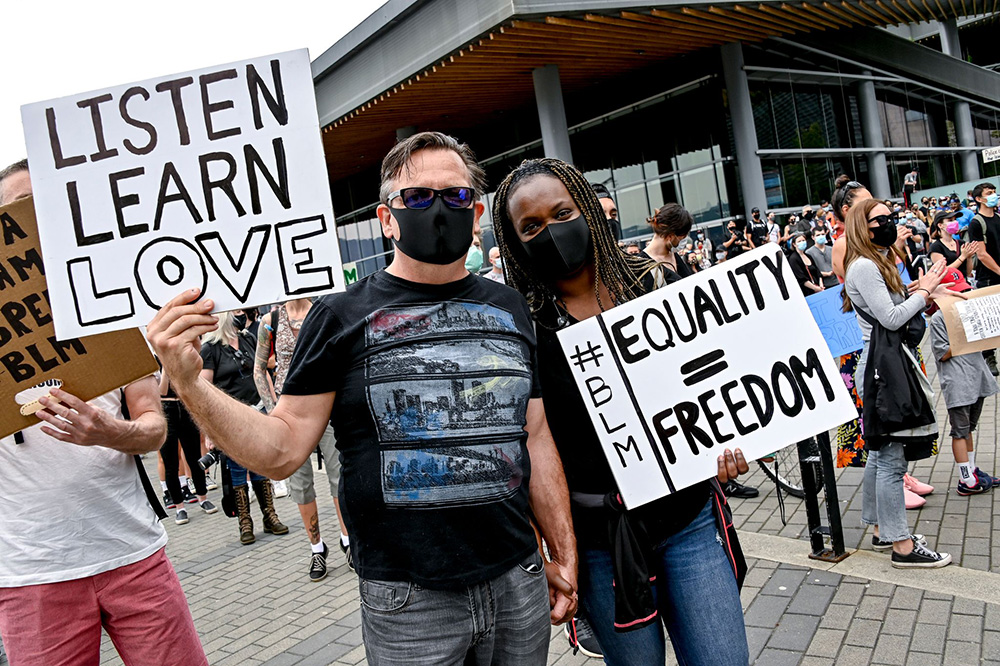
For some, support started with the need to ask questions.
“The first thing I realized as a white woman is that I don’t know what I don’t know. So, I need to learn. I need to learn about the history of racism in Canada, listen to persons of colour and hear their stories and ask what I can do.”
“I am unsure how to really help. I want to have a dialogue with Black friends to ask them: ‘What should I be doing? You tell me.’ I think that is the most important thing to do as a white ‘sympathizer.’ Ask them. Not make assumptions on my own.”
“I would like more direct communication with our government representatives. Writing emails to city council is not enough. How do we as the public get informed on decisions and policy? And how do we inform the decisions made that directly affect us as the people?”
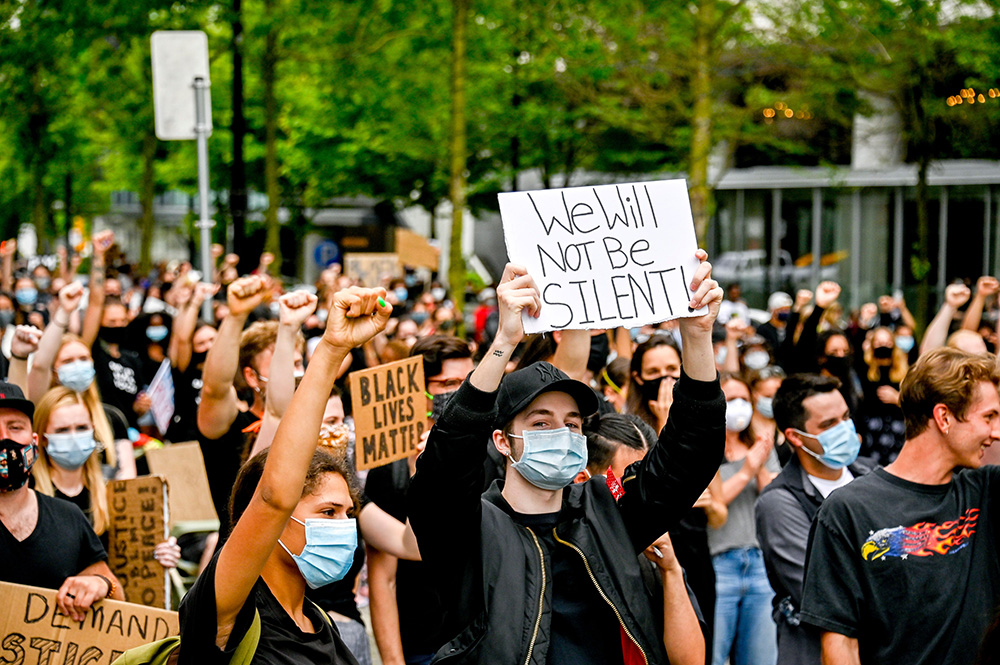
Others feel that the situation, and what we need to do, is clear.
“There certainly is visible racism in Canada. Everyone needs to take responsibility to treat others as we all wish to be treated. It has to start at home, teaching young children to accept people of all races. Learning about all cultures that make up the mosaic of our country is rewarding, and more should be done to share information about them.”
“The dominant culture needs to admit to faults and work to change behaviour and attitudes towards those of different colours.”
“Until we demand full equality for all citizens — with no exceptions — regardless of wealth, heritage, gender, political bias, superstition, place of residence (or lack of), disability, job, or who your friends or relatives happen to be, we will never get anywhere.”
Some respondents expressed optimism about the movement’s power to bring change.
“I am feeling more positive about the future in North America than I have for a long time. Institutional racism is not new… the violence and killing of Black people in the U.S. and Canada, and Indigenous people in Canada, is not new. The strength and solidarity of the response to it seems much different now. We could be, I hope, at the start of real positive and inclusive change.”
While others expressed frustration along with hope.
“As a 75-year-old I am encouraged to see Generation Z step up. My generation marched in the ’60s and many of the gains have been lost. Instead of progress, this country is going backwards. It is time to address the racial divide and inequities in the United States. I not only fear for my African American friends and family, but for our country.”
“I’ve been pushing for change since I reached voting age, and don’t ever plan to stop… it’s shameful that there’s still so much work to do, and that so many are still actively working against progress. I’m only doing what I can afford to do, what I have the time and resources to do, and there are no laurels to rest on here.”
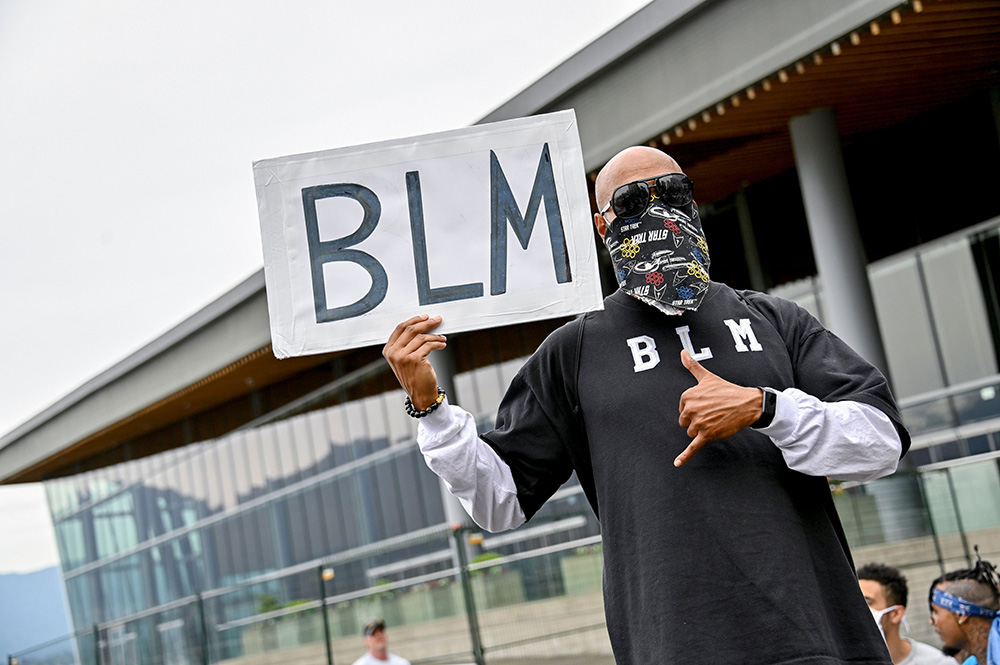
And some readers described how systemic racism is part of their lives.
“I’m tired, very fucking tired of this happening over and over and over and nothing comes of it... as a Black kid, teen, adult, mom I have seen it all... I have hope but don’t see it changing.”
“I think of my mother every time I hear of someone being discriminated against. She was native American but hid it mainly to prevent me being discriminated against. I can’t imagine how awful it was to live being afraid that the secret might be exposed. I am so grateful and proud of her sacrifice. I know others have done the same. This lack of knowledge of where you come from deprives you of your history and your roots.”
Some participants in The Tyee discussion called for a greater focus on anti-Indigenous racism, but many noted the connection with anti-Black racism.
“I am also interested in reconciliation with First Nations. I know there is a place where this and anti-racism toward Black people intersect. That is where I would like to see progress and to be able to contribute to it.”
“People of colour matter. Canada’s Indigenous people clearly face intense racism too. Black lives matter, and I will continue to argue with anyone who expresses racist comments or behaviour and will always post on social media and sign petitions almost daily.”
“As #BLM has done, I always connect the struggle for justice with #Indigenous Rights, #Latinx Rights, #Migrant Rights and #Palestinian Rights.”
Some readers reported taking action to make change within organizations, including their workplaces or other groups.
“Writing to my mayor and council to defund and abolish the police and prisons and instead funding life-affirming services like mental health care, harm reduction services and free transit among others.
“Created a petition to include Black History in the curriculum. Reached out to my school district, BC Teachers’ Federation, wrote letters to Education Minister Rob Fleming beginning last year about this subject.”
“I got approval from my work’s board to start looking into how we can divest from the Vancouver Police Department, which may even result in lobbying council to change city policies to accomplish it.”
“We changed the original topic of the upcoming Urban Issues forum [an ongoing Douglas College and SFU public engagement series] to ‘racism.’”
“I plan to write to Health Minister Adrian Dix today to tell him that once again police are arresting the wrong people and the fact that we still have racism in Canada proves that without protests that bring the problem to the surface this racism will continue.”
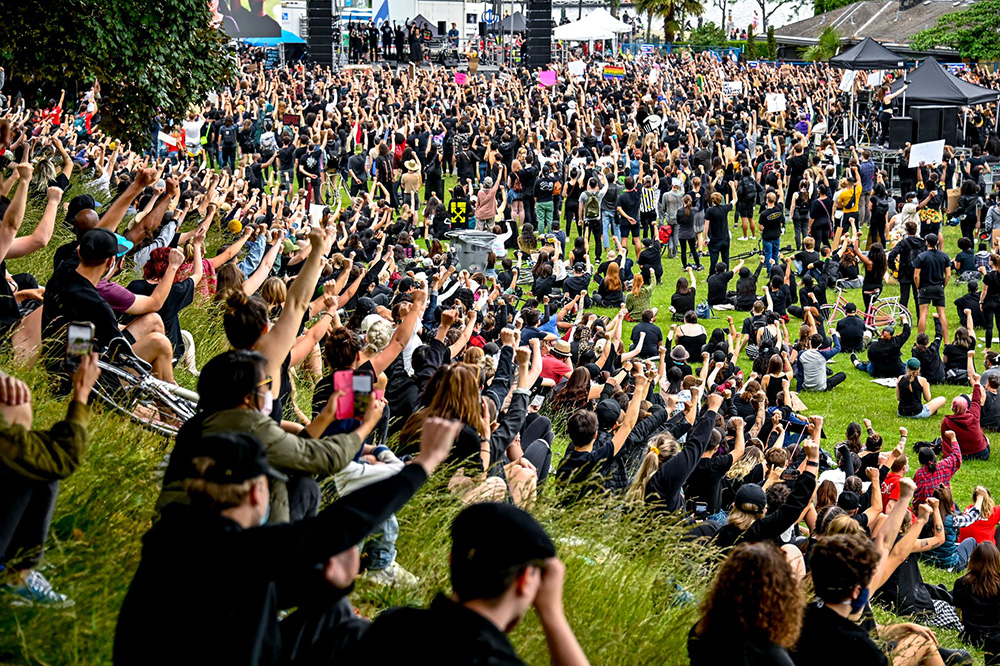
And respondents also shared positive stories about activism in smaller communities.
“I’m mostly reading and learning and liking comments online that are constructive and positive-solution based. Attending a support rally in Salmon Arm was a visual ‘aha’ of the solidarity values in our community.”
“There haven’t been any BLM rallies near here so far as I know. But there have been rallies for the Indigenous people killed by police, and I will go whenever I have the opportunity. Like many, I’m searching for ways to make change, whether it’s in me, or this community.”
Some talked about using social media as a tool to bring change.
“I work with assorted community advocates to get the word out about different racial incidents and share compelling stories, social media posts, and essays… I am in a book club about racism and talk to family and friends.”
“Primarily, I have decided to take on any and all racist, anti-protest, ‘justification’ type posts on Facebook. I know I will not change the minds of the haters, but my challenges are for the silent majority who read and don’t comment on those posts. Someone must call out these actions every time they show up online.
Many people shared stories on their efforts to be an effective ally.
“As a white settler woman, I am trying to go further by listening to the voices of Indigenous, Black and other people of colour. I know I have much to unlearn and to learn. I have already made some mistakes, but I am committed to taking on my own racism and being an active anti-racism ally.”
“First, I’m trying hard to just listen to what Black and Indigenous persons are saying, and to not diminish it in my mind or emotions. Second, I attend webinars and read articles by, or interviews with, Black and Indigenous persons. My homework is to remember what I learn and consider how I can help. At present I feel I can help most by paying attention (calling out injustices) and by donating to organizations that promote good, affordable and accessible education for children and youth.”
“I am encouraging my younger family members to attend protests while supporting them by babysitting if needed.”
“I have continued to support financially and to engage with a U.S. inner-city community centre that serves mostly Black, low-income families.
And some readers were open about their own struggle to offer effective support.
“While I agree with the powerful need to deconstruct our white supremacist/colonialist/patriarchal system, as a low-income senior who lives alone it is hard to know what I could do, other than start conversations, even though I know from experience that these conversations need to be sensitive and extremely patient.”
“As a white yoga teacher waking up to her privilege over the course of the last decade, I have spent many hours reading, educating, learning and having conversations about race. This heightened awareness of racism to BIPOC is both saddening and inspiring… But I’m confused by calls to allyship that are then contradicted with accusations of white virtue signalling. I have grown silent on social media and absent in person.”
And many readers reminded us of the importance of work that might not always be visible.
“Reading, listening to people’s opinions, experiences, attending protests, starting an intentional conversation group… all with the intention of self-examination and finding ways to be an ally.”
“I have been in conversations with my boyfriend and family that I never anticipated having. I have found I have way more radical beliefs than some of the people closest to me which has been challenging… I am realizing every day how much more critical knowledge needs to be publicly available and accessible.”
“As someone who has spent years on the ‘frontlines’ (pickets, rallies, protests, marches, sit-ins), I am now actually finding it’s time for me to hold the space for others. As a white ally, I’m focusing on listening carefully so I can share messages and opinions of those Black and people of colour voices who are (and should) be leading. I’m also spending a lot of time in prayer and mindful reflection to call for love, respect, compassion and truth to prevail.”
Our readers also suggested some sources to help people who want to learn more: Our Grandmother’s Hands: Racialized Trauma and the Pathway to Mending Our Hearts and Bodies by Resmaa Menakem; Eyes on the Prize, a PBS mini-series on the civil rights movement in the U.S.; How to Be an Antiracist by Ibram X Kendi; White Fragility: Why It’s So Hard for White People to Talk About Racism by Robin DiAngelo; The Skin We’re In by Desmond Cole and Policing Black Lives: State Violence in Canada from Slavery to the Present by Robyn Maynard. You can read a Tyee interview with Maynard here.
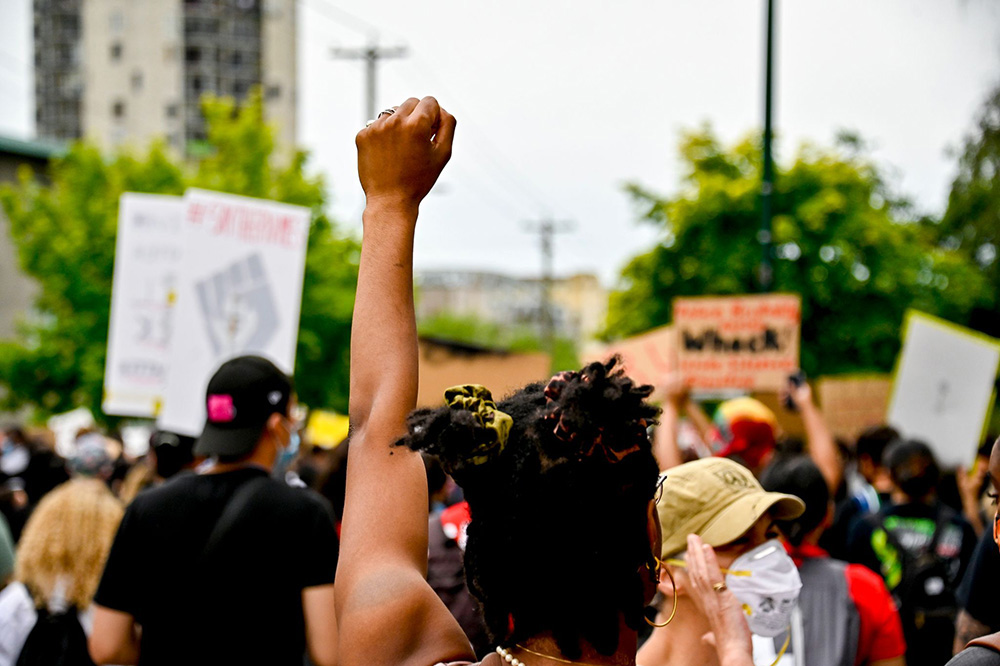
Thanks for sharing, Tyee readers.
Tyee polls are intended as a quick and engaging non-scientific snapshot of our readers’ opinions on various topics that fit with The Tyee’s very broad editorial mandate. They are not intended to be seen as a representative sampling of B.C. opinion. See more polls here. ![]()
Read more: Rights + Justice


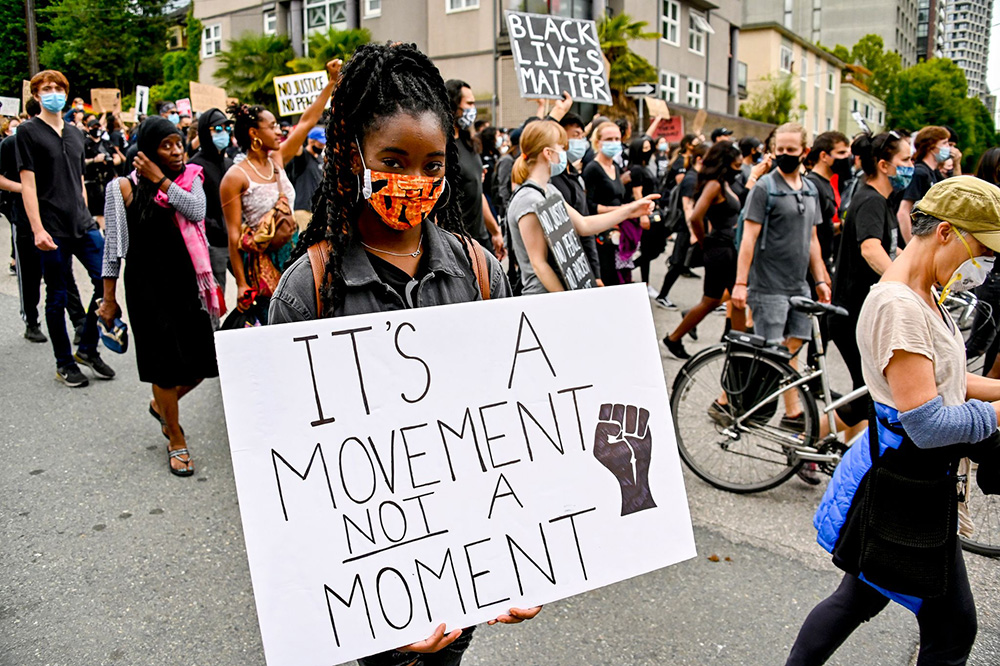












Tyee Commenting Guidelines
Comments that violate guidelines risk being deleted, and violations may result in a temporary or permanent user ban. Maintain the spirit of good conversation to stay in the discussion.
*Please note The Tyee is not a forum for spreading misinformation about COVID-19, denying its existence or minimizing its risk to public health.
Do:
Do not: